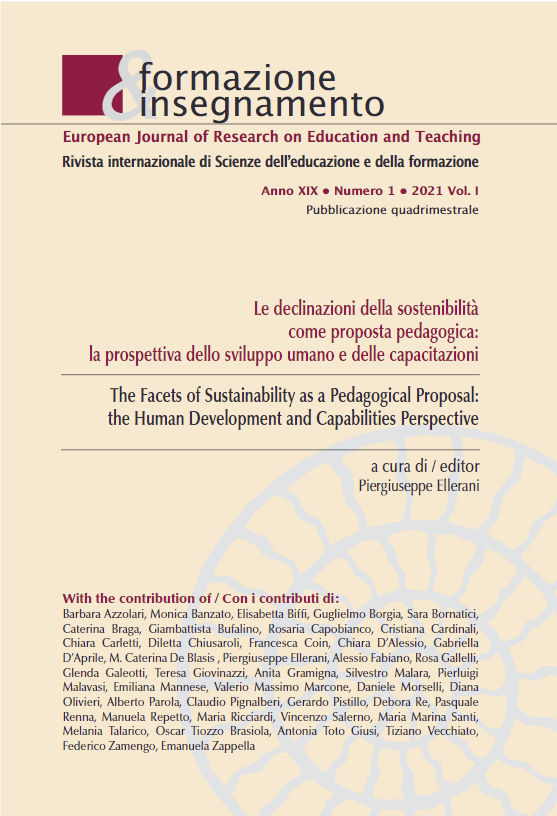The relationship between nature and culture in the educational anthropology of Edgar Morin
DOI:
https://doi.org/10.7346/-fei-XIX-01-21_06Abstract
The purpose of the reflections we present here is epistemological. The approach is hermeneutical and qualitative. The occasion of this study is provided by the voluminous publication of Edgar Morin’s autobiography, I ricordi mi vengono incontro, published in France in 2019 and translated into Italian in 2020. The French scholar, now centenary, weaves a network of memories, sometimes fragmentary, full of names and facts, sometimes chased with a meticulous reconstructive will. However, in some cases, the research effort on the past opens our eyes to characters, situations, and crucial turning points in the field of knowledge, which help to confirm an intuition that is accompanying us in the last years of our research on the epistemological terrain. The starting hypothesis is that the scientific enterprise must be the object of investigation even according to a previously neglected angle of view: the life stories of the protagonists of that activity. In them, one finds out how personality traits can influence research: accelerating it or delaying it. Simultaneously, the prejudicial dimension emerges, the ease or not of communication, the relational modalities that each person adopts when dealing with others. We believe that epistemology can, and must, venture into this context to conduct an explanatory and, ultimately, formative work.
Downloads
Published
How to Cite
Issue
Section
License
Copyright (c) 2021 Pensa MultiMedia

This work is licensed under a Creative Commons Attribution 4.0 International License.
Formazione & insegnamento is distributed under Attribution 4.0 International (CC BY 4.0).
For further details, please refer to our Repository & Archiving Policy, as well as our Copyright & Licensing Terms.





